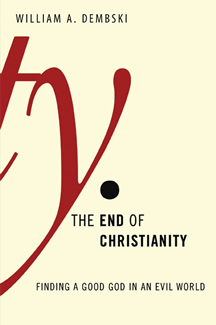Although its official release date is not until November 1, THE END OF CHRISTIANITY is now in stock and being sold at Amazon.com (go here). Even though argument in this book is compatible with both intelligent design and theistic evolution, it helps bring clarity to the controversy over design and evolution. In particular, it resolves the problem of dysteleology and natural evil by introducing a conception of the Fall that is theologically sound and also compatible with modern science (i.e., with standard astrophysical and geological dating that places the earth and universe at billions of years old).
